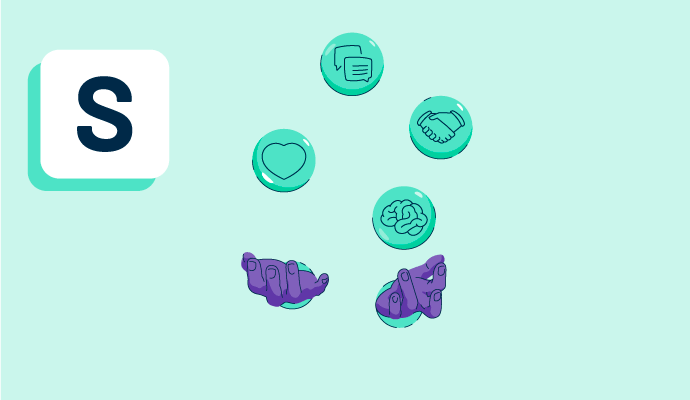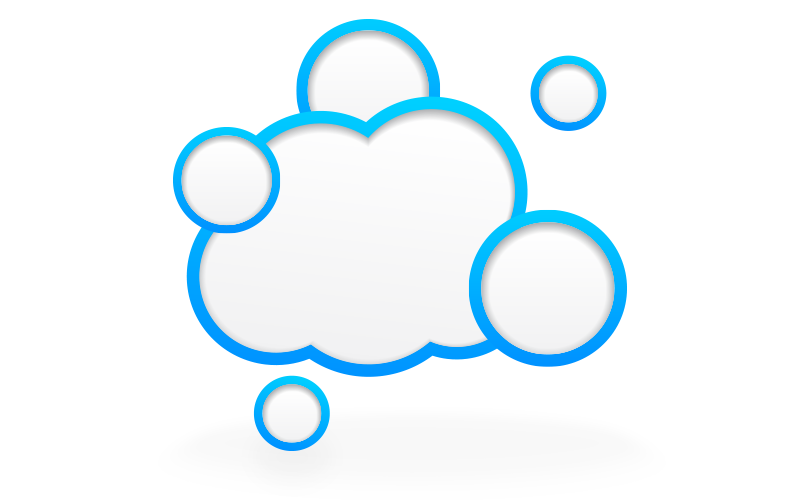What are soft skills?
Soft skills are non-technical skills that impact how successful an individual is at their job. Individuals who possess these traits are typically more successful in their role than those who only have technical, or hard, skills required for the position.
An employee with hard skills can do the technical part of the job, but one with both hard and soft skills can also manage their time well and perform in a team environment.
Examples of soft skills are:
- Time management
- Networking
- Teamwork
- Creativity
- Conflict resolution
- Stress management
- Critical thinking
- Decision making
- Adaptability
- Problem-solving
- Leadership
- Work ethic
Companies use skills management software to encourage their employees to take advantage of what having soft skills can mean in their role. Employees can also learn how soft skills can help them tackle various responsibilities.
Types of soft skills
An individual can possess many types of soft skills. Typically, the most sought after soft skills fall into the following four categories:
- Interpersonal: The ability to collaborate with others is crucial to success in a team environment. Examples of interpersonal soft skills include self-awareness, assertiveness, and conflict management and resolution.
- Communication: Employees with communication skills can empathize, communicate with, and listen to coworkers, vendors, and customers. Examples include verbal, non-verbal, written, and listening skills.
- Time management: These employees meet deadlines and arrive on time. Examples include decision making, planning, delegating or outsourcing, and boundary setting.
- Critical thinking: Employees with these skills are good problem solvers and can succeed in leadership roles. Examples include analysis, interpretation, interference, open-mindedness, explanation, and self-regulation.
Soft skills benefits
Possessing soft skills is essential for individuals searching for a new job. Companies that hire employees with good soft skills reap the following benefits:
- Improved customer relations. Interpersonal skills help employees communicate and empathize with customers, which can improve relations and satisfaction.
- Positive team culture. Employees with soft skills communicate well with their coworkers, managers, and vendors. This makes for a positive work environment and company culture.
- More productive. Employees with effective interpersonal skills get more done in less time. They work better in teams, which means projects are completed faster and more efficiently.
Soft skills in the workplace
While soft skills are necessary for all areas of life, a few are uniquely beneficial in a work environment. These include:
- Leadership: An employee’s ability to supervise, direct, and lead in a work environment
- Teamwork: The ability to work with others to accomplish a common company goal
- Communication: Competent communication verbally, non-verbally through body language, and through written communication
- Problem-solving: The potential to overcome and learn from obstacles in the workplace
- Work ethic: The capacity to self-motivate, arrive on time, meet deadlines, and create quality work
- Flexibility and adaptability: The willingness to adapt according to the needs of the company, as well as take on new challenges outside their comfort zone
- Interpersonal: These are the employee’s basic people skills, including their ability to build and maintain relationships, build rapport, empathize, and respond to criticism
Best practices for developing soft skills
Contrary to popular assumptions, soft skills can be learned. Best practices for developing these attributes are:
- Observe: Employees that wish to develop these qualities should observe their coworkers in action. Watching how others interact can help an individual learn valuable interpersonal skills.
- Assess: Employee assessments can help people recognize areas of weakness and create an action plan for improvement in those areas.
- Learn: Once individuals know which qualities require improvement, they can use relevant online courses and personal development books to work on those skills.
Soft skills vs. hard skills
While soft and hard skills are necessary for success in most roles, recruitment practices tend to focus heavily on hard skills.
Hard skills are the job-related knowledge and abilities that employees need to do their specific job function. Examples include technical, analytical, and marketing skills.
On the other hand, soft skills are the personal qualities that help an employee succeed in the workplace. While hard skills are role-specific, most roles require the same set of soft skills.

Martha Kendall Custard
Martha Kendall Custard is a former freelance writer for G2. She creates specialized, industry specific content for SaaS and software companies. When she isn't freelance writing for various organizations, she is working on her middle grade WIP or playing with her two kitties, Verbena and Baby Cat.

